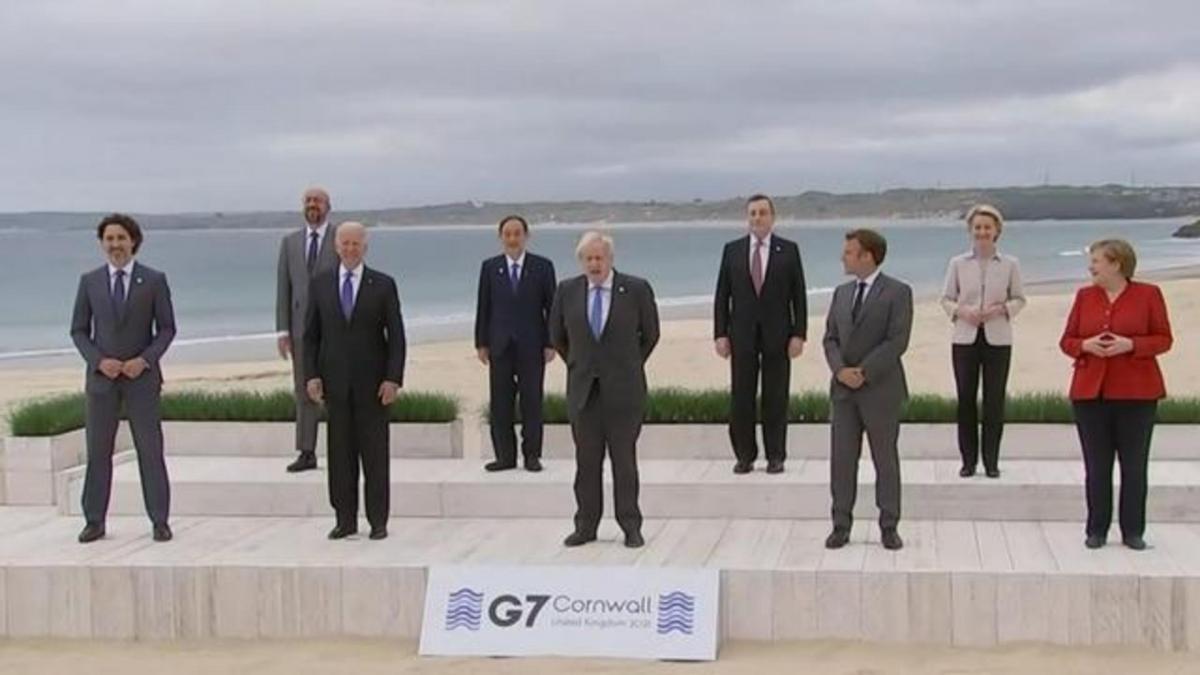There are no products in your shopping cart.
| 0 Items | £0.00 |


NIGERIA looks set to benefit from the supply of more doses of the coronavirus vaccine after the Group of Seven (G7) nations approved a $650bn loan to the International Monetary Fund (IMF) to purchase more shipments for developing countries.
Last week, the G7 met in the UK where among other things, it agreed to bankroll the purchase of more vaccines to ensure poor countries were not left behind. An inter-governmental political forum consisting of Canada, France, Germany, Italy, Japan, the UK and the US, the G7 has served as a formal, high-profile venue for discussing and coordinating solutions to major global issues on trade, security, economics, and climate change.
At the end of the summit, IMF managing director Kristalina Georgieva, explained that the G7 support of the additional funding, the largest issuance in history. She added that it will help boost global reserves while providing space for necessary fiscal expenditures to exit the pandemic and enable more sustainable recoveries.
Ms Kristalina said the IMF will be channelling funds and/or budget loans to reach a total global ambition of $100bn for the most vulnerable countries. Nigeria received 3.94m doses of the Oxford-AstraZeneca vaccines in early March and is due to get another a consignment of 29.8m doses of the Johnson & Johnson coronavirus vaccine through the Covid-19 Vaccines Global Assess Facility (Covax) facility soon.
Funded by the World Health Organisation (WHO), Covax was set-up to divide about 2bn doses of vaccines across 92 low-and middle-income countries. So far, Nigeria has received 4m doses of the AstraZeneca vaccine through Covax and India has augmented this by donating a further 100,000 doses of its Covishield coronavirus vaccine.
Ms Kristalina said: “This was a consequential summit as the renewed spirit of international cooperation was palpable, with the G7 stepping up its efforts to help the world exit this crisis. I can assure you that the IMF is playing its part.
“I would like to thank Prime Minister Boris Johnson and the UK authorities for setting up a forward-looking agenda for the G7 summit, focusing on the most pressing challenges facing the world today. The IMF has been warning about dangerously diverging recoveries and most recent data confirm that this trend not only continues but deepens.
“Together with the World Bank, WHO and the World Trade Organisation, the IMF staff recently proposed a $50bn plan to end the pandemic by vaccinating at least 40% of people in every country by the end of this year and 60% by mid-2022. The most urgent part of the plan is to redirect excess vaccine doses from advanced economies to the developing world.
She explained that from the start, the IMF emphasised the crucial importance of grants and by its assessment, about one-third of the needed $35bn in grant financing has now been secured from public and private sources. According to Ms Kristalina, policymakers will face difficult choices when gradually withdrawing support and targeting will be critical to assist vulnerable people and viable firms.